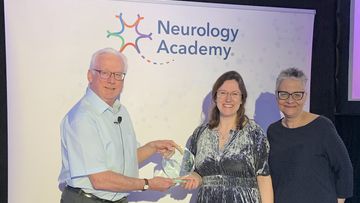Taking over a community Parkinson’s clinic
Background
New consultant post, job plan included taking over two community Parkinson’s clinics from a superb, experienced and well-loved retiring consultant.
Initial thoughts
Many pros, including taking over well-established community clinics, a happy cohort of patients, patients well (& kindly!) prepared for the change by my predecessor, lone working (time to establish), a Parkinson’s nurse, and an established apomorphine & clozapine service in the area. Slight drawbacks were the big shoes to fill, and, as with taking over any new cohort of patients, getting to know a whole community from scratch! The community and apomorphine nurses were also new.
More critical assessment further down the line – does it “meet needs”?
Looking at NICE Parkinson’s disease Quality Standards [QS164], published February 2018, instinct was that it probably does, but have not yet participated in Parkinson’s UK national audit. Anecdotal patient feedback has been positive, as has feedback from local GPs.
I would like and need to discuss with patients and their families attending the clinics, but even prior to doing the audit, I have already observed potential areas for improvement:
- Written info not available in clinic waiting areas
- Non-motor questionnaire not systematically used
- Advanced therapies not discussed routinely
- Osteoporosis not routinely considered
- Research not easily available in current clinic set-up
- Clinic slots for holistic assessment feels too short
- Uncoordinated spacing between PD nurse and consultant follow-up clinics
- Communication between related services (physio, bladder and bowel etc) not ideal
- Not managing to address advanced care planning in current set-up
Interventions
Early days, but so far the most satisfying achievement (other than getting to know all the patients!), has been to improve communication between related services. The problem here was that despite being nominally running the clinic in a “community” hospital, I slightly had the sense of “sitting in the dark”, with no feedback on referrals to eg physiotherapists. The only feedback was X months later directly from the patients when seeing them again. On exploration of this, it was revealed that discharge summaries from therapy input were being sent to GPs only, regardless of origin of referral. These are now also sent to hospital consultants involved in their care, and are really helpful. In addition, the admin lead for the therapy teams is now pro-actively liaising with the secretary organising the clinic list, and sends pertinent updates for any patients being seen.
Have increased the frequency of discussing advanced therapies, and earlier in patient trajectories, resulting in several referrals to our local tertiary referral centre.
Continuing to work on all the other areas, including aiming to increase follow up slots to 20 minutes, planning to participate in next Parkinson’s UK audit for benchmarking, and exploring options for introducing advance care planning discussions into the service.
More Parkinson's Academy Service development Projects

'The things you can't get from the books'
Parkinson's Academy, our original and longest running Academy, houses 23 years of inspirational projects, resources, and evidence for improving outcomes for people with Parkinson's. The Academy has a truly collegiate feel and prides itself on delivering 'the things you can't get from books' - a practical learning model which inspires all Neurology Academy courses.